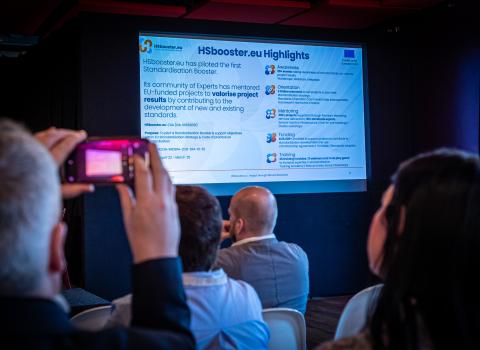A common language and collaboration to meet the challenges of new technologies. University and enterprise are forming a new alliance thanks to Planet 4, the European project coordinated by the University of Pisa. It has been activated since the end of 2020 to bridge the gap between scientific research on Artificial Intelligence (AI) and Machine Learning (ML) and its industrial application, as an enabling technology for the industry 4.0.
The results of this ambitious project are potentially directed at an audience of around 20 million small and medium-sized enterprises - as many as there are in the European Union, which is lagging behind in adopting modern digital 4.0 technologies.
"The industry 4.0 model requires European small and medium-sized enterprises to deal with technological progress more decisively if they want to maintain their competitiveness on the global market," explains Daniele Mazzei, associate professor at the Department of Computing Science at the University of Pisa and team leader of the project. "We worked with Planet4, first and foremost, to improve communication between the academic world and small and medium-sized European enterprises in the field of new technologies, creating a proper Esperanto in the industry 4.0. This is a new form of collaboration between university and business that represents an evolution of the traditional technology transfer. The new model reveals in a timely manner the company's need to adapt to the 4.0 tool, providing them with the best technologies. Thanks to an operational procedure consisting of three fundamental steps: identification of the challenge, research phase and solution proposal.
Planet4 has developed two strategic tools for the future of the European industry 4.0, which satisfy requirements of varying complexity. Planet4 results will be presented at the project's final conference on 2nd October in Pisa.
The first tool is Planet4 Taxonomy Explorer, a kind of “search engine” for Industry 4.0 and its requirements, which allows companies to identify from academic and corporate sources possible solutions to their own needs. They can browse through solutions, already adopted by others to solve similar problems, and then develop them independently. To date, this “taxonomy” already includes 32 business challenges/needs and 147 enabling technologies.
Challenge & Solution Template is the second tool developed by the project inspired by Apple's Challenge-Based Learning. It allows a greater customisation of solutions. The template guides the company through pre-established stages that range from the definition of the challenge and the business context to the identification of the technological solutions, which are needed to achieve the initial goals within the planned timeframe. These stages pass through an assessment of technical and economic-managerial feasibility, for the best solution to be adopted.
As part of the Planet4 model, universities have been asked to offer proper training to European SMEs in the new technologies. This training is aimed at both students, who will be the workers of the future and will need to know how to use 4.0 technologies, and at the business world, so that they can make fully informed decisions.
In addition to the University of Pisa (Coordinator), Planet4 also includes: Panepistemioypole Ioanninon (Greece); Elecnor Sa (Spain); Viesoji Istaiga Kauno Mokslo Ir Technologiju Parkas (Lithuania); Zerynth SpA (Italy and spinoff of UniPi); Bobst Bielefeld Gmbh (Germany); Ohs Engineering Gmbh (Germany); Exquisite Srl (Romania); Universitat Ramon Llull Fundacio (Spain); Politechnika Rzeszowska Im Ignacego Lukasiewicza Prz (Poland); Valuedo Srl (Italy). Launched on 1st November 2020, the project will end on 31st October 2023.
This article was first published on 4 July by University of Pisa.





 A unique international forum for public research organisations and companies to connect their external engagement with strategic interests around their R&D system.
A unique international forum for public research organisations and companies to connect their external engagement with strategic interests around their R&D system.